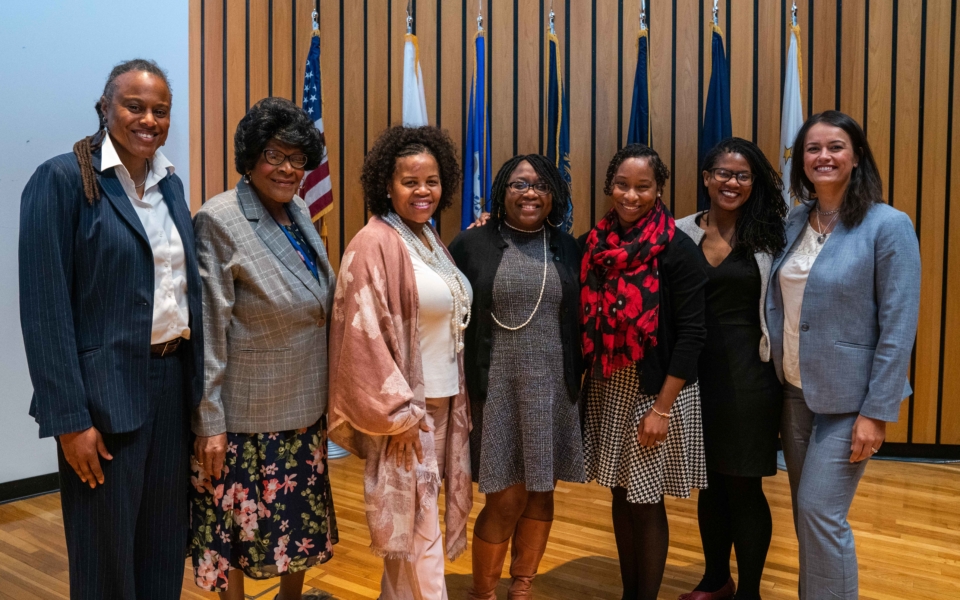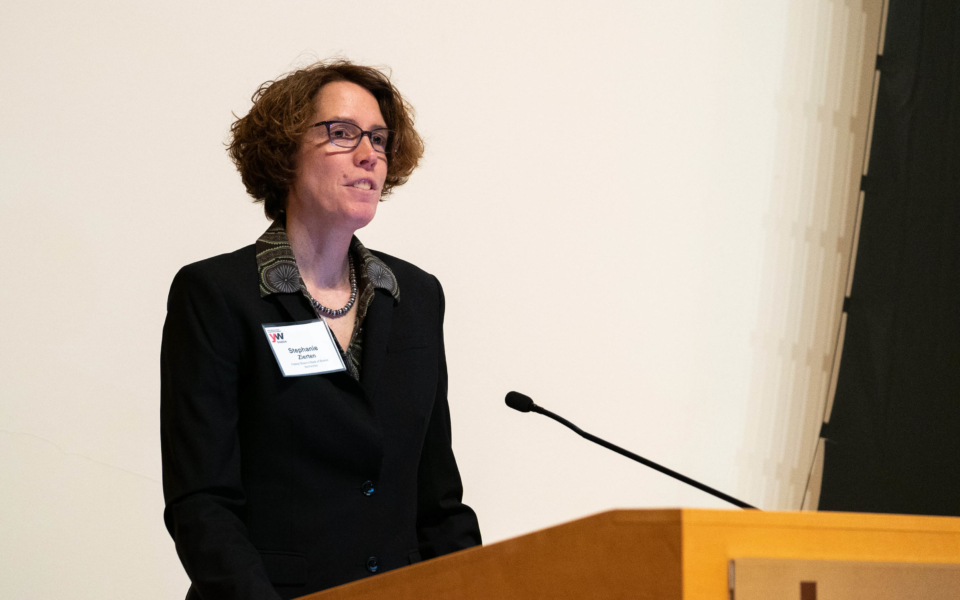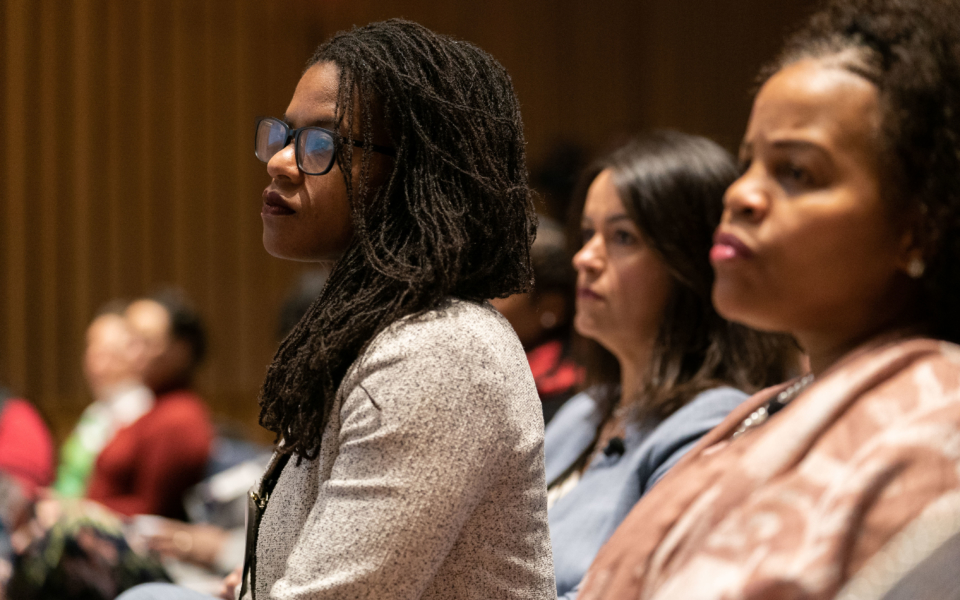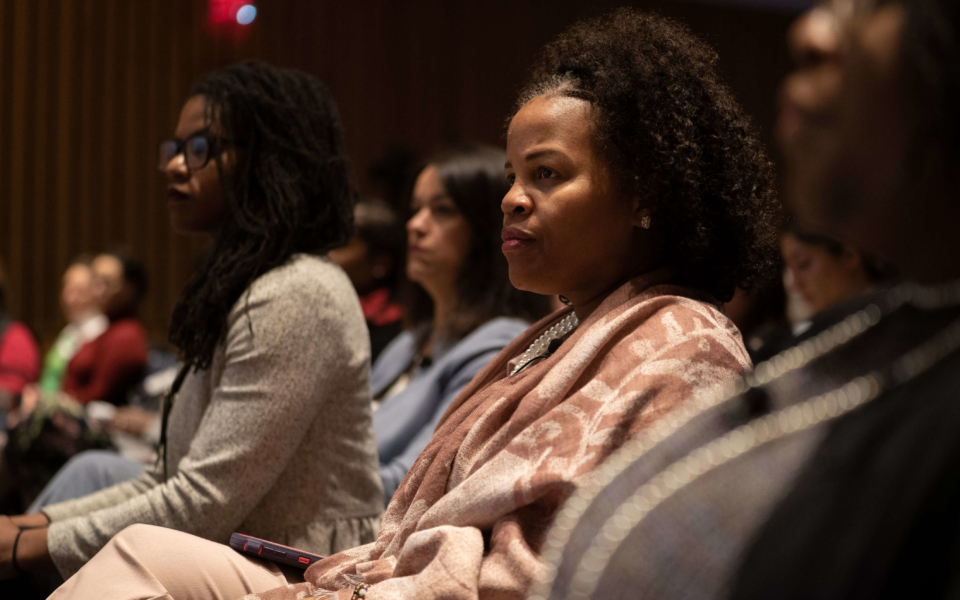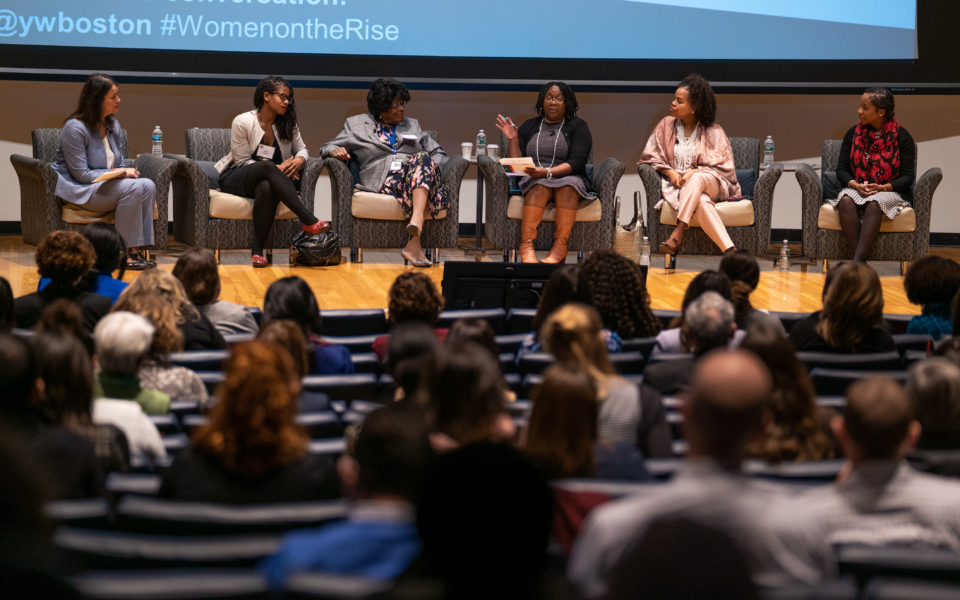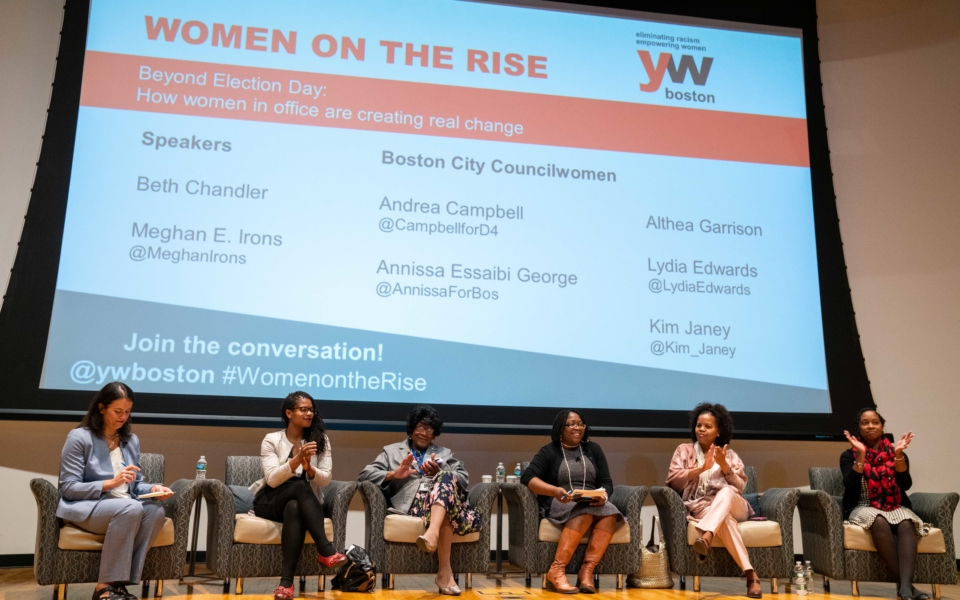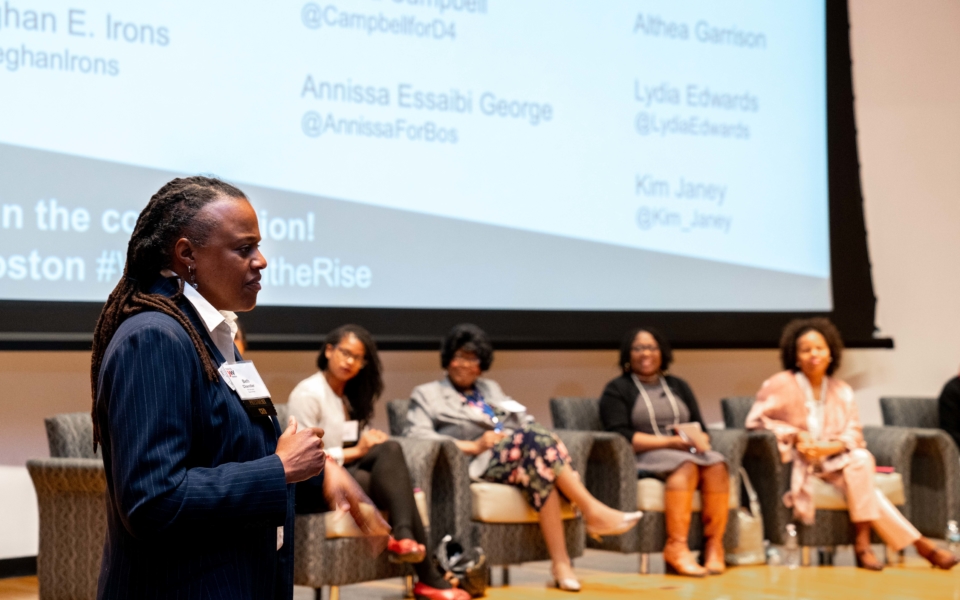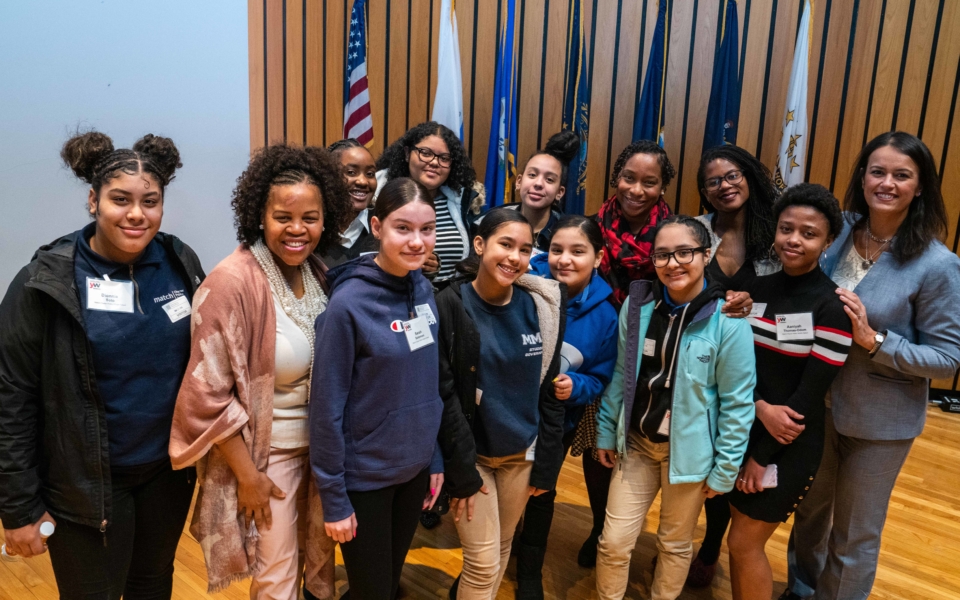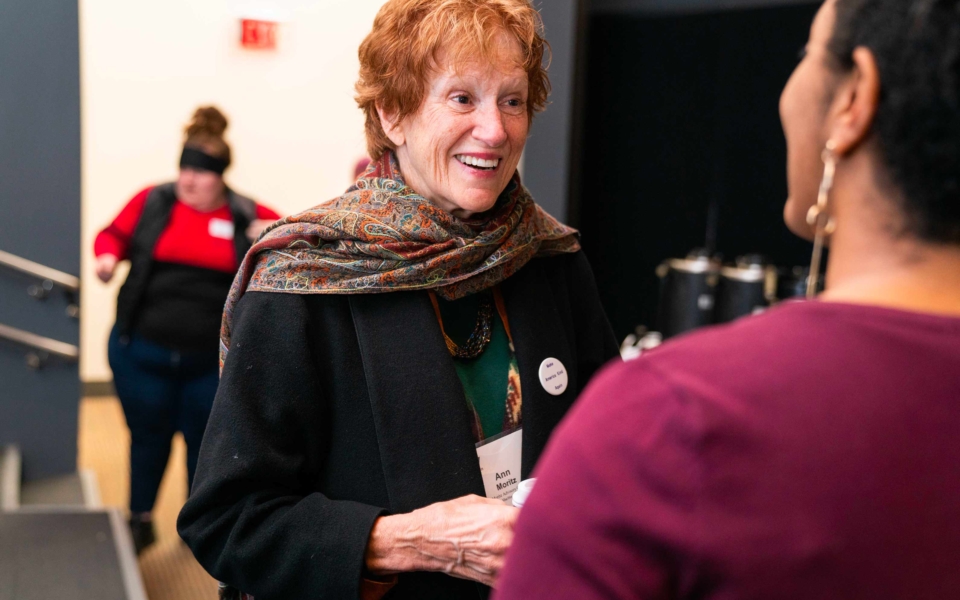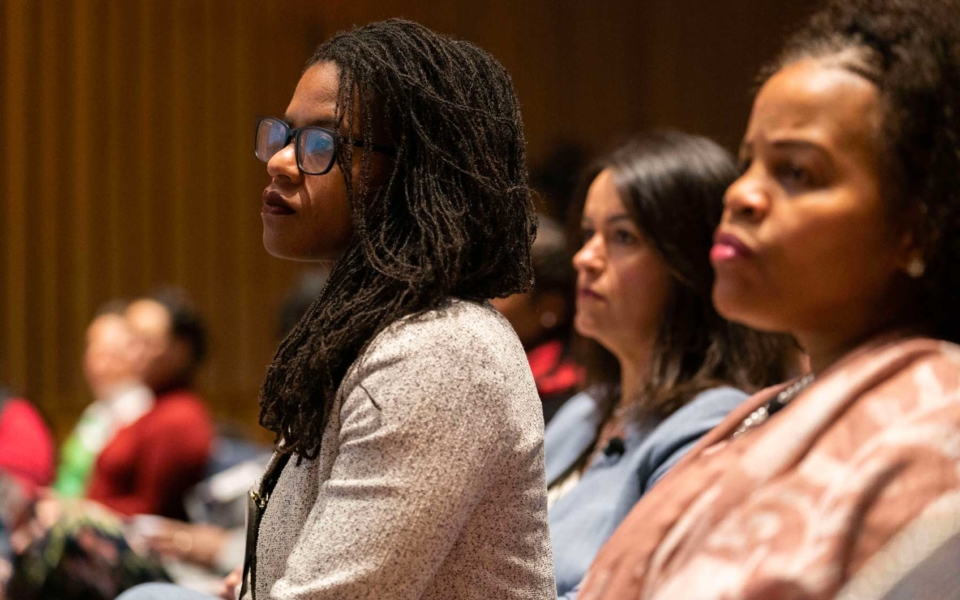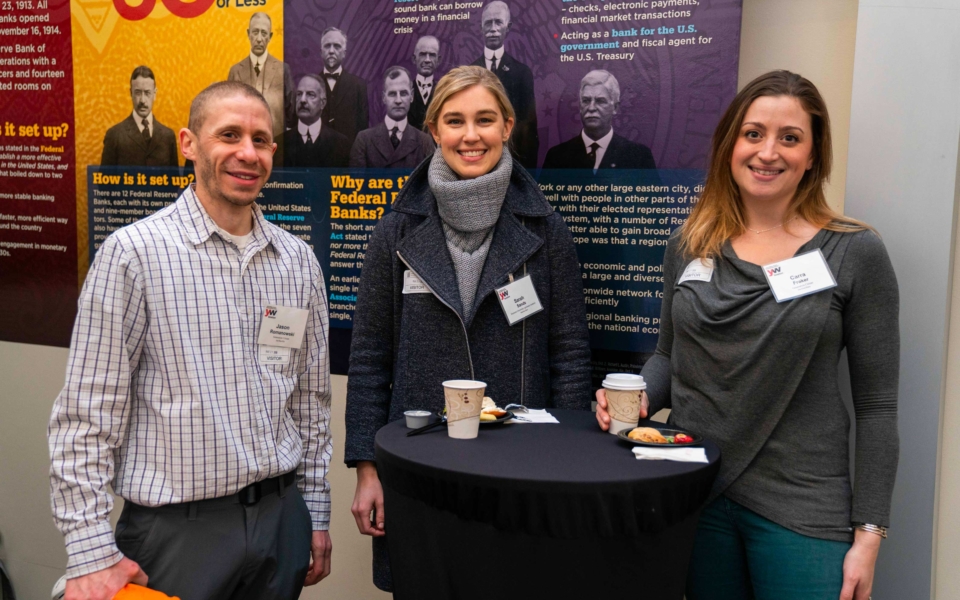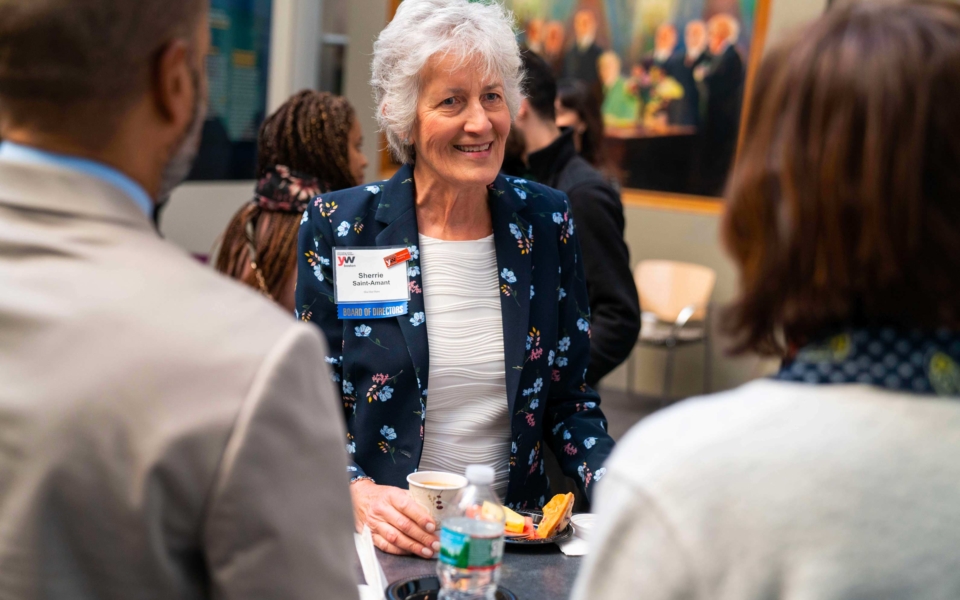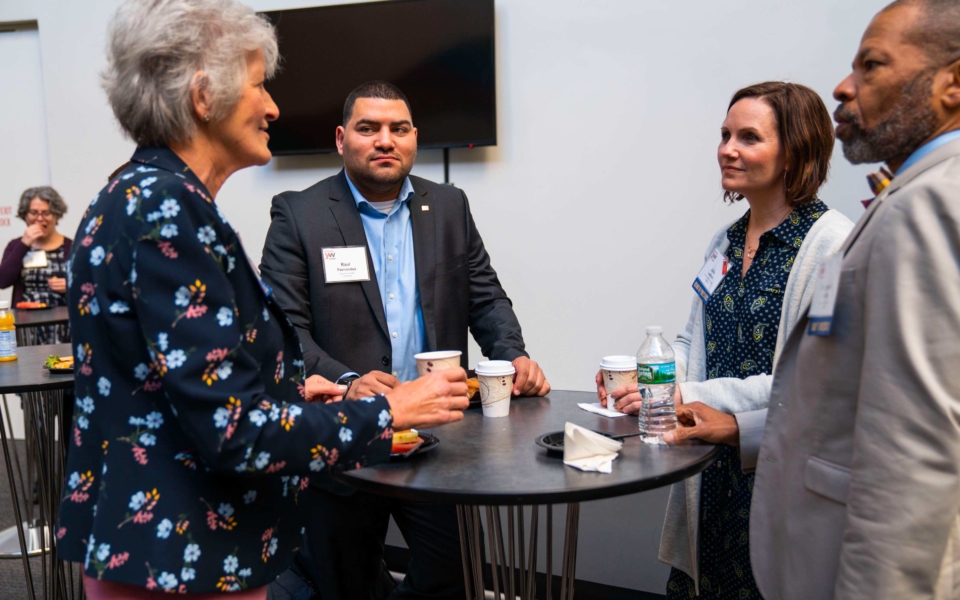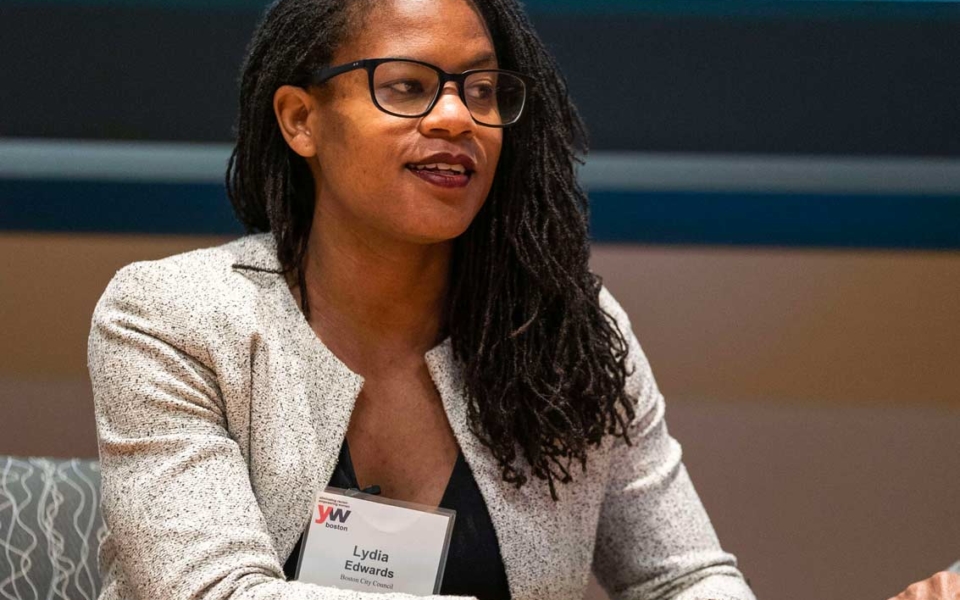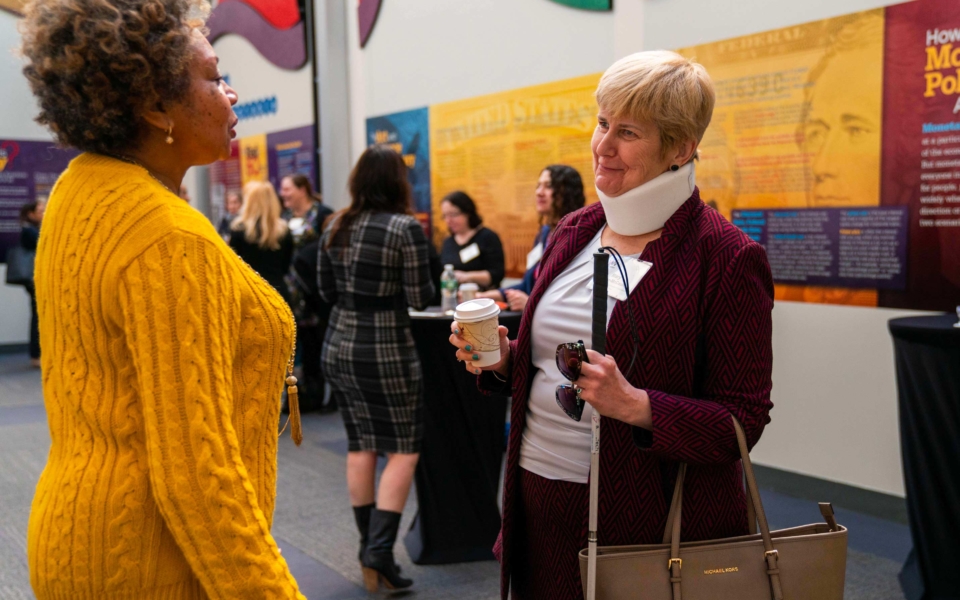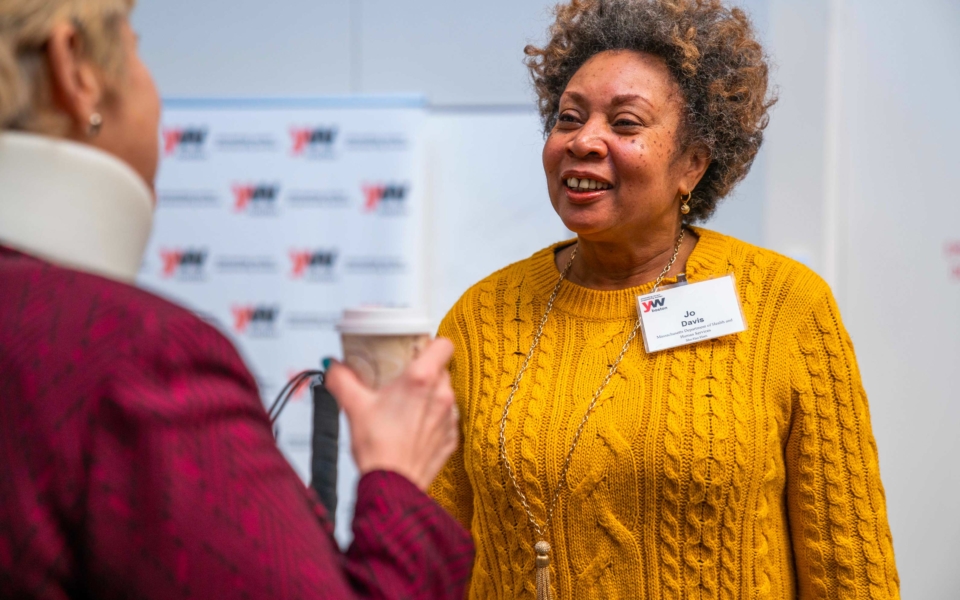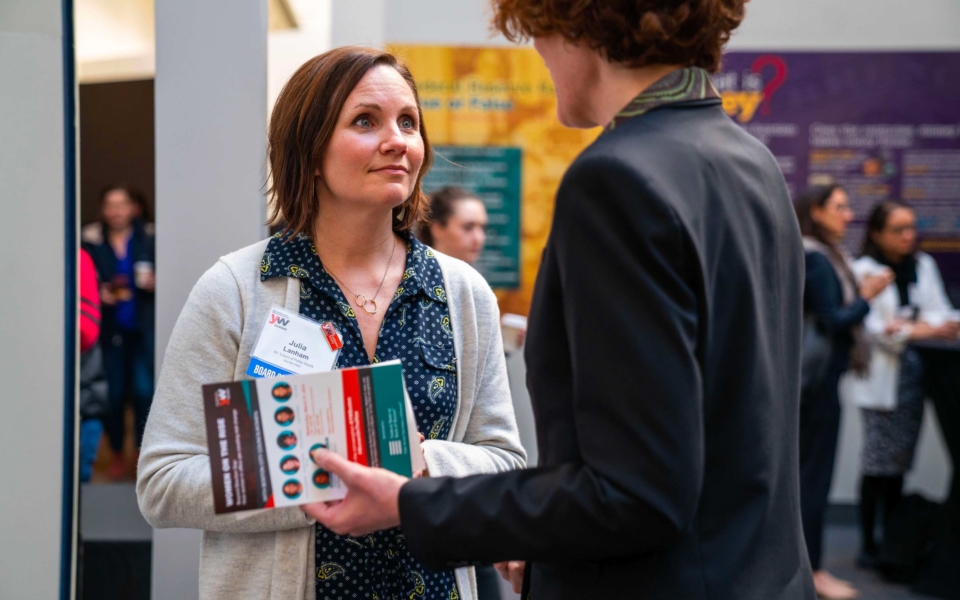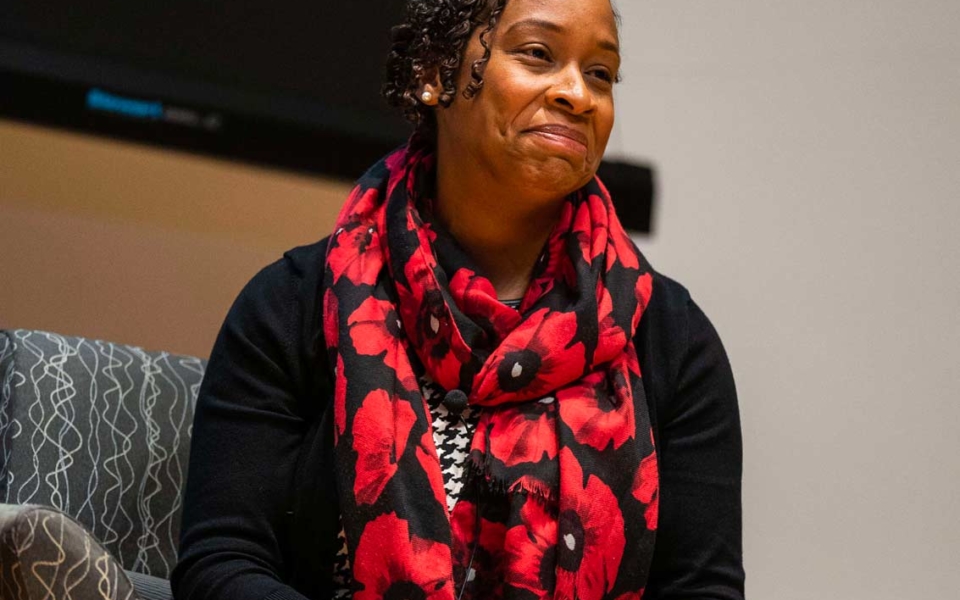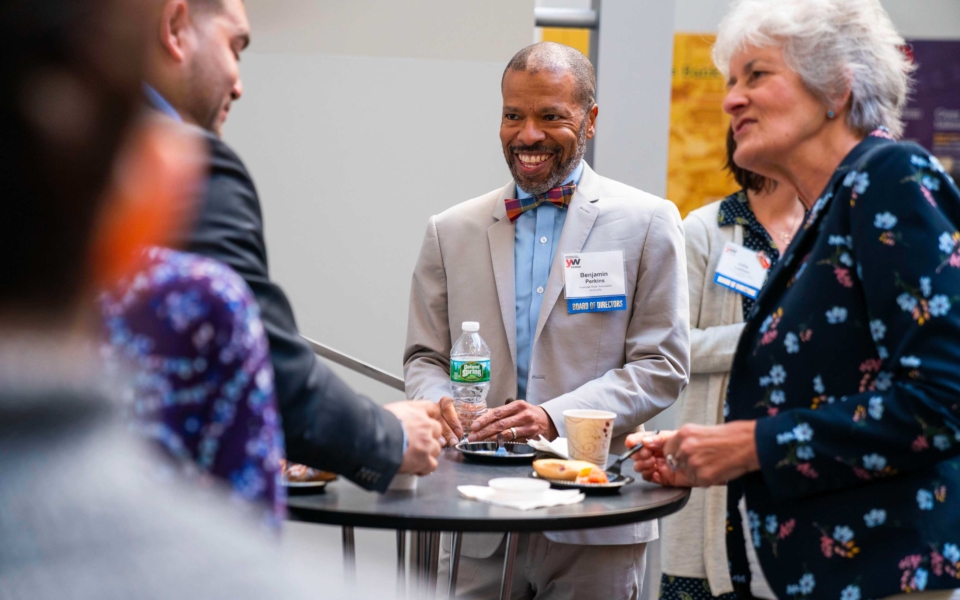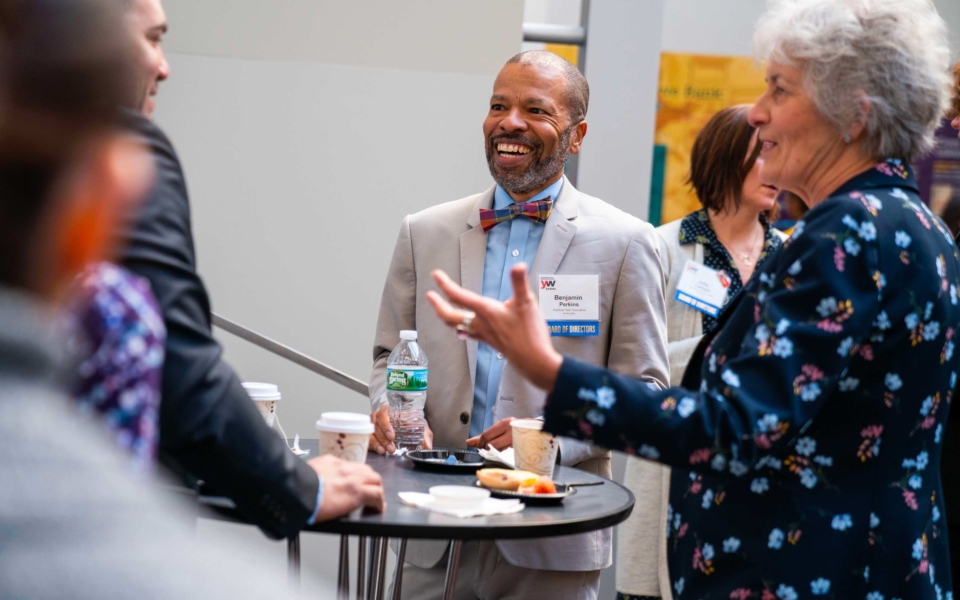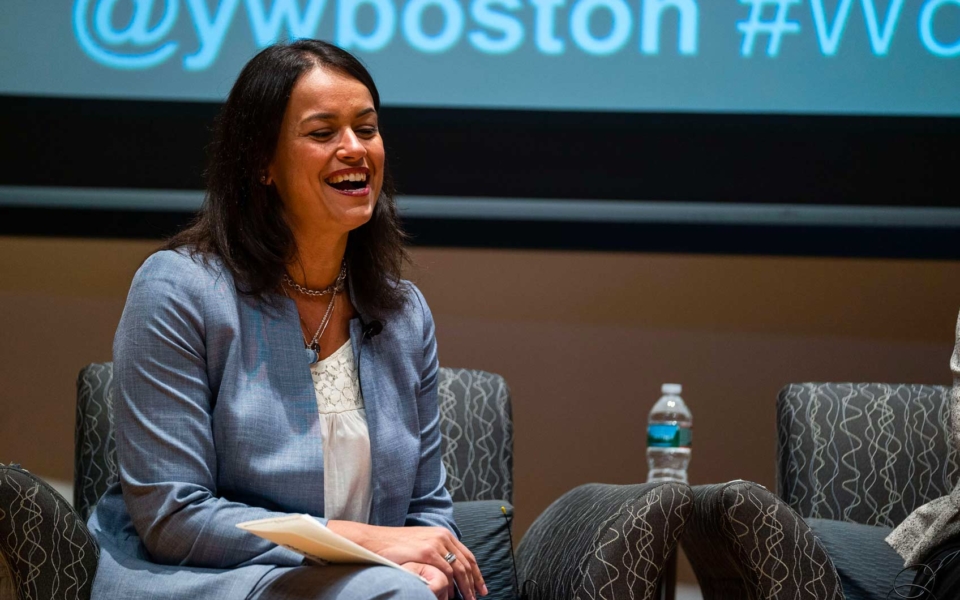5 insights from Boston City Councilwomen on making history and creating real change in Boston
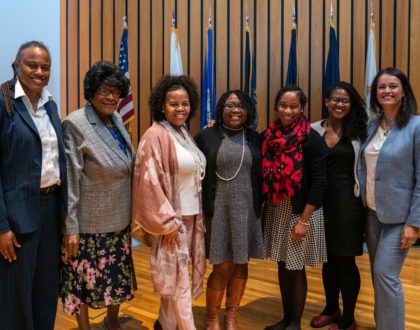
“This has to be more than a moment; it has to be a movement and that depends on all of you. Progress is a continuum, there’s no such thing as having finally done it.”
– Kim Janey, Boston City Councilor for District 7
On Wednesday, March 27, 2019, YW Boston was proud to host Women On the Rise Beyond Election Day: How women in
If you were unable to attend Women on the Rise Beyond Election Day, watch a
Event attendees heard from Boston City Councilors,
• Andrea Campbell, Council President
• Annissa Essaibi George, At-Large
• Althea Garrison, At-Large
• Lydia Edwards, District 1
• Kim Janey, District 7
City Councilor At-Large Michelle Wu was unable to join us due to a previous engagement.
5 insights from Boston City Councilwomen on making history and creating real change in Boston
YW Boston President & CEO Beth Chandler prefaced the discussion by highlighting the tremendous accomplishments for women in local and national politics in the year 2018. Beth Chandler went on to say that, “these women know more than anyone that after Election Day is where the work really begins. Today we will dig deeper into this conversation around leadership, specific issues affecting Boston, and the future of politics with so many women, and in particular women of color leading the charge.”

1. We have come a long way, but there is still work to do towards closing the racial and gender power gap in Boston
Currently, with six women of color, the Boston City Council is more diverse than ever. Furthermore, our Boston City Councilwomen have achieved historical firsts. Andrea Campbell is the first black woman to be elected Council President. Michelle Wu, who was unable to attend, is the first Asian-American woman to serve on the Council and was elected as the first woman of color to serve as Council President in 2016. Nevertheless, m
Audience members and councilwomen alike expressed the feeling that Boston is more than ready for a woman as mayor. “In a time when women are the demographic majority in the City of Boston, as well as people of color,” Andrea Campbell went on to say, “the question is whether our institutions are representative of the demographics of the City of Boston.” Councilwoman Althea Garrison voiced the thoughts of other Councilwomen in saying, “I think Boston is ready for a female mayor. I believe there

2. Seeing women in office should be normalized and it’s important to keep improving visibility so everyone can see themselves represented
Moderator Meghan E. Irons asked the Councilwomen, “Do you think we should evolve from asking what it’s like to be a group composed of all women? Do we ask this of groups composed of all men?” On this topic Councilwoman Annissa Essaibi George went on to explain that, although she does not appreciate the spectacle that sometimes gets made of them as a group of women in the City Council, she understands the importance of having the public hear from women in these roles and for people to learn about all the work that goes beyond election day and into councilors’ two-year terms. Councilwoman Kim Janey added that “It is important for people in the audience and in the City of Boston to see themselves represented in this council and other departments.” On the subject, Councilwoman Lydia Edwards emphasized that, “We [the Councilwomen] are the norm. We represent Boston. I feel like we bust open the glass ceiling and I’m telling everyone what it’s like because we’re expecting more people to come in behind us. I’m not tired of the question, I’m tired of folks assuming we’re the exception to the rule, when we just set a new standard.”
"It is important for people in the audience and in the City of Boston to see themselves represented in this council and other departments." – Kim Janey, Boston City Councilor for District 7 Share on X
3. Let’s move beyond representation and make this a movement, not a moment
“It means a great deal to represent the most diverse council in the history of the City of Boston,” Council President Andrea Campbell stated, “But I’m also talking about the incredible work that each one of us does. We’re fighting to move the needle on some really important issues and most of this stuff isn’t in the public space. Community preservation acts, more housing, resources for homeless students, you wouldn’t have that without the City Council”
Kim Janey adds, “This has to be more than a moment; you have to make sure that it’s a movement and that depends on all of you. The fact that we’re still talking about it is because it’s still new. We’ve arrived, we’ve made history here but progress is a continuum, there’s no such thing as we finally have done it.”

4. Igniting change requires community
Councilwoman Lydia Edwards talked about her upbringing and background as a legal services attorney, which shaped her desire to be an unapologetic advocate for others. She recognized that this work does not occur in isolation. Regarding her approach when it comes to advocating for others, she said, “When I see oppression and I don’t see an appropriate response from the administration, that’s what I am attacking. That’s what I’m being fierce about. Some people may take that personally and see it as a character assassination. No. I see oppression, I see an ineffective response to it, I’m attacking that response. And I use the word attack because I mean to destroy and I am okay with that.”

5. The Boston City Councilwomen are tackling many challenges, and Education is a top priority
Councilwoman Annissa Essaibi George, a former high-school teacher of thirteen years, believes one of the biggest challenges facing the City of Boston is a slow response in matters of Education. Essaibi is concerned that, at this rate, her children and many others won’t see important changes in their lifetimes. “Whether it’s the Superintendent search, building Boston Public Schools, building better opportunities for over 4,200 students in Boston Public Schools experiencing homelessness, whether it’s trying to get a full-time nurse in the 44 Boston Public Schools that don’t have one or getting more mental and behavioral health specialists on school staff. Education is one place where we can really impact change.”
“The challenges are many,” Kim Janey asserted, “I think there’s too much lip service. I worry words like diversity, equity, and inclusion become just that–words. It’s frustrating because education in our city, for many, is life or death. This is the opportunity to change the trajectory of our children–whether or not they end up incarcerated or can support themselves and their families in the future. We like to talk about diversity but when it comes to dismantling power structures, racism, white supremacy–people get nervous.”
Council President Andrea Campbell, who wrote an opinion piece published in the Boston Globe titled What’s at stake in the search for a new BPS superintendent, affirmed that, “It’s a crisis. It is life and death. I don’t just say that professionally, it is personal to me. I care deeply about education because I had a twin brother who went through a system called BPS and had a different experience than I did. In a system that serves almost 90% black and brown students. The system is still failing black and brown children. And if a system is failing some, it’s failing all of us. If you live in this city, work here or pay taxes, you should be concerned that a system on which we’re spending over a billion dollars in can’t get it right. And I can’t give up on that system, because other families don’t have the luxury.”
To that point, Lydia Edwards added that the Council has “not given up on BPS” and that they are “going to fight for BPS.” Councilwoman Althea Garrison expressed she would like to see a superintendent that is “competent and efficient and can bring resources to children in schools.”
_____
YW Boston would like to thank the Federal Reserve Bank of Boston for sponsoring the event, The Boston Globe’s Meghan E. Irons for moderating, and the hundreds of people in attendance who helped make #WomenOnTheRise the number one trending topic on Twitter.
_____
About YW Boston
As the first YWCA in the nation, YW Boston has been at the forefront of advancing equity for over 150 years. Through our three programs—Dialogues, LeadBoston, and InIt—as well as our advocacy work and Stand Against Racism campaign, we help individuals and organizations create more inclusive environments where women, people of color, and especially women of color can succeed.
Sign up for YW Boston’s monthly newsletter to receive news and invitations to our upcoming events.

